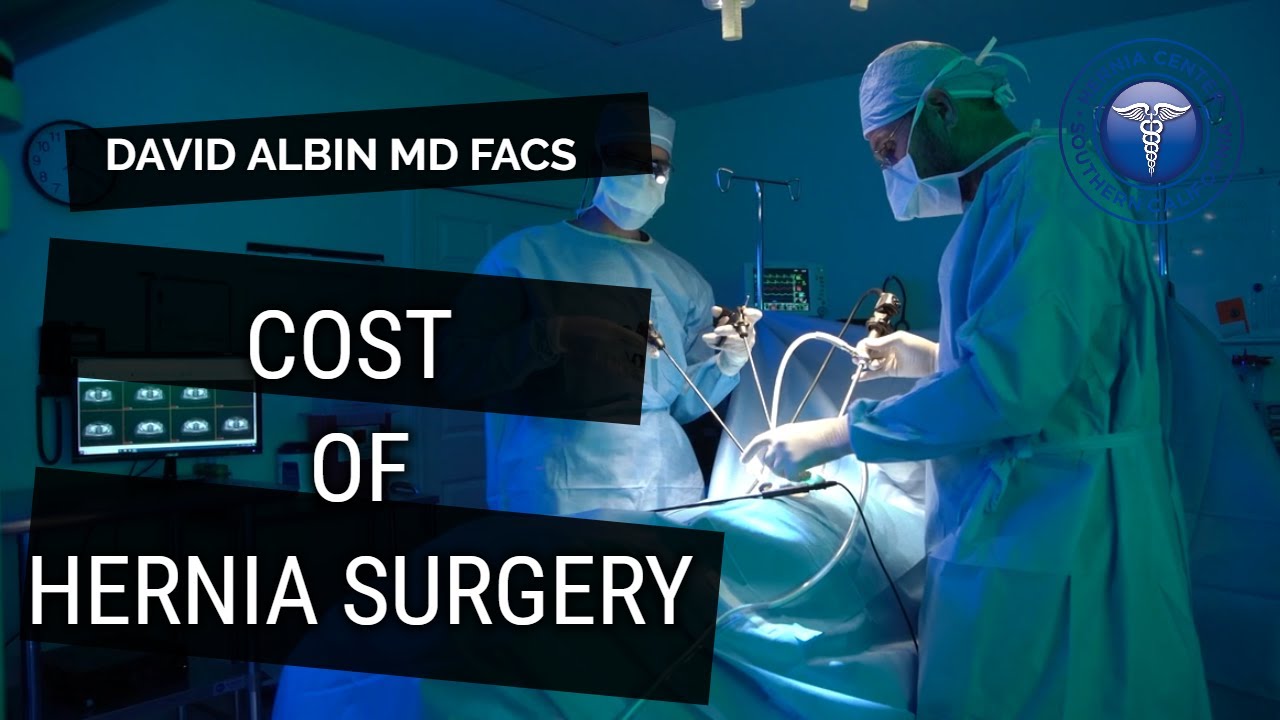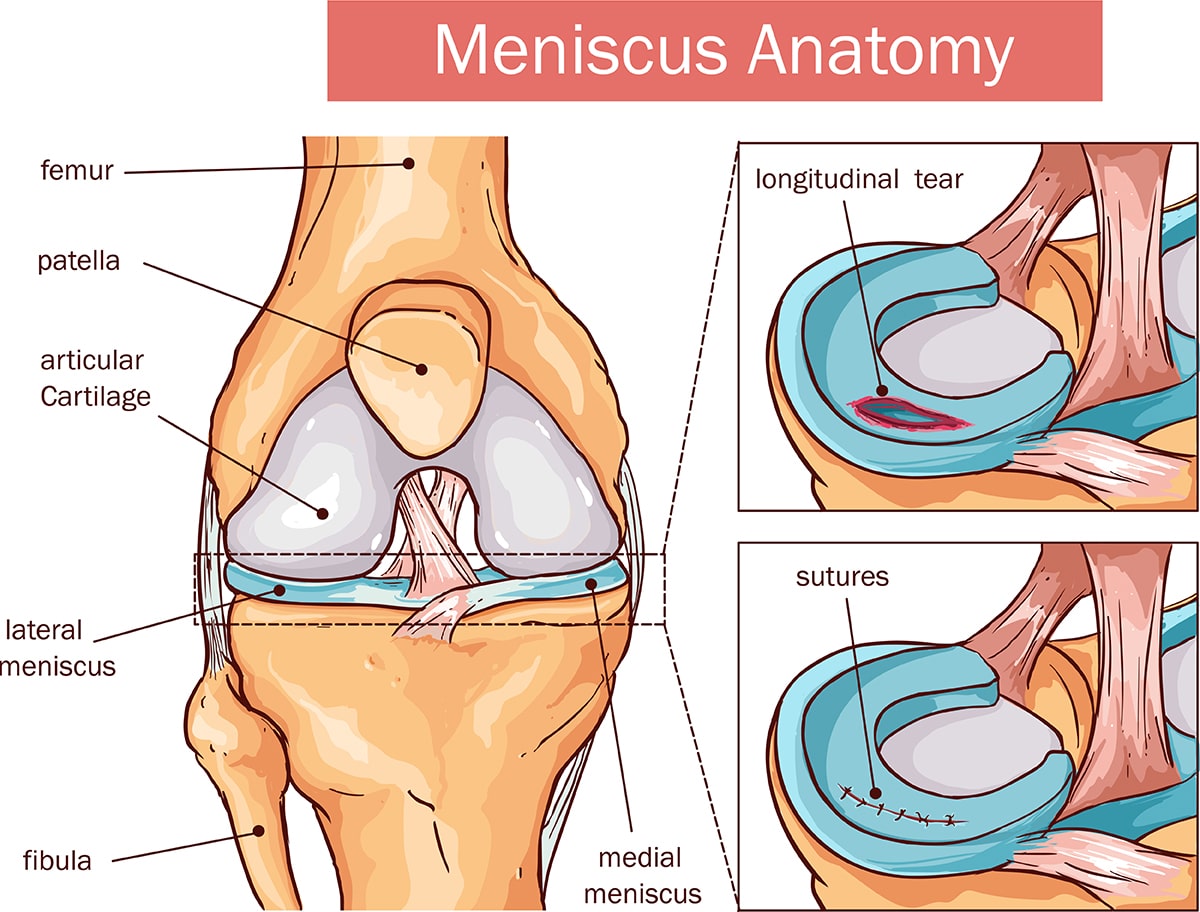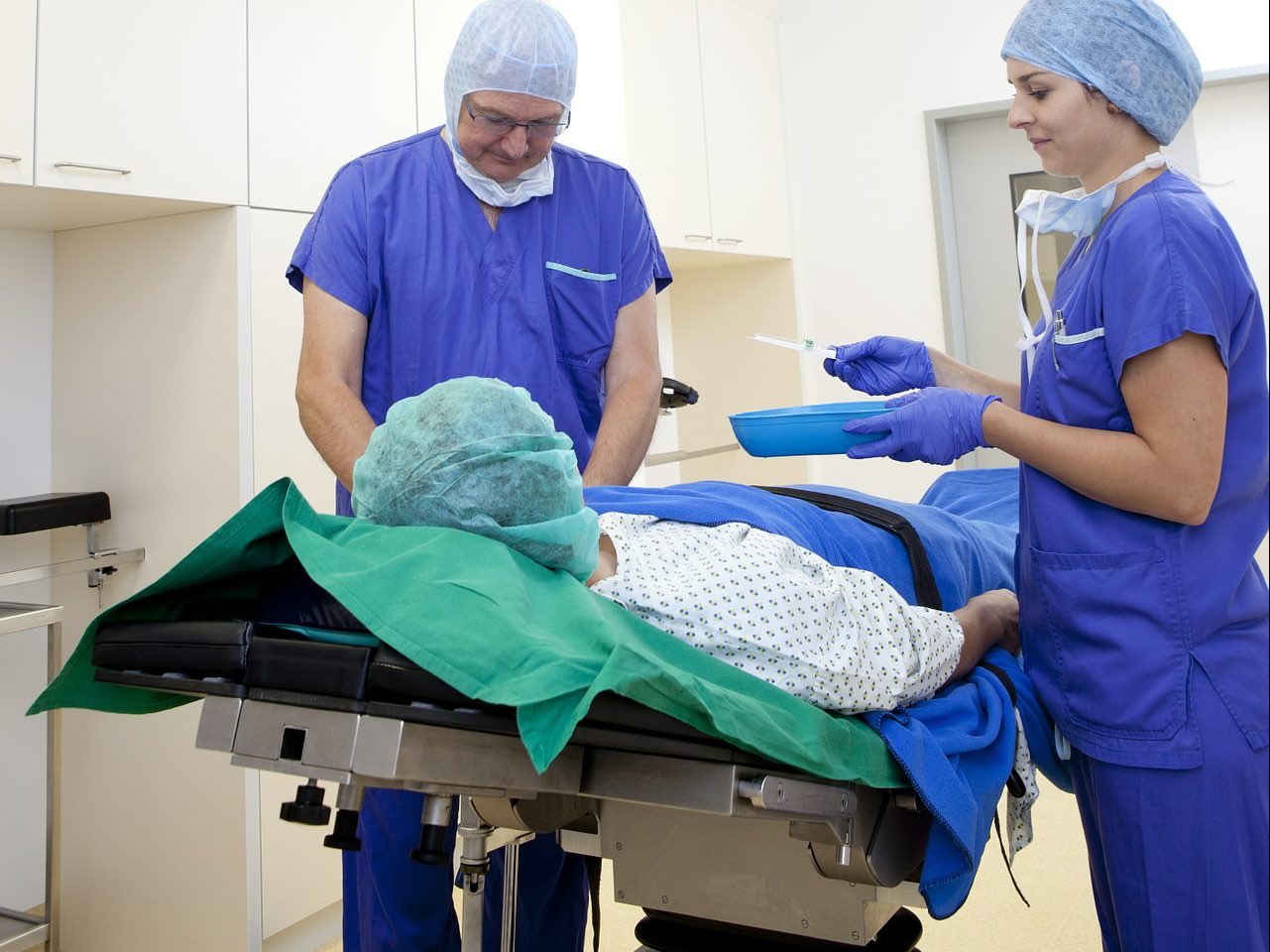Home>Finance>How Much Does Arthroscopic Knee Surgery Cost Without Insurance?


Finance
How Much Does Arthroscopic Knee Surgery Cost Without Insurance?
Published: November 18, 2023
Learn about the cost of arthroscopic knee surgery without insurance and explore finance options to help cover the expenses.
(Many of the links in this article redirect to a specific reviewed product. Your purchase of these products through affiliate links helps to generate commission for LiveWell, at no extra cost. Learn more)
Table of Contents
- Introduction
- What is Arthroscopic Knee Surgery?
- Reasons for Undergoing Arthroscopic Knee Surgery
- The Cost of Arthroscopic Knee Surgery
- Factors Affecting the Cost of Arthroscopic Knee Surgery
- Cost of Arthroscopic Knee Surgery Without Insurance
- Potential Financing Options for Arthroscopic Knee Surgery
- Conclusion
Introduction
Arthroscopic knee surgery is a common procedure used to diagnose and treat various knee problems, such as torn ligaments, cartilage damage, and joint inflammation. It involves using a small camera, called an arthroscope, to visualize the inside of the knee joint and perform minimally invasive repairs or corrections.
This type of surgery has gained popularity due to its numerous benefits, including shorter recovery time, minimal scarring, and less postoperative pain compared to traditional open knee surgery. However, the cost of arthroscopic knee surgery can be a major concern for many individuals, especially those without health insurance coverage.
In this article, we will explore the factors that influence the cost of arthroscopic knee surgery, as well as potential financing options for those without insurance. Whether you’re considering this procedure for yourself or simply curious about the expenses involved, understanding the financial aspects of arthroscopic knee surgery can help you make informed decisions.
What is Arthroscopic Knee Surgery?
Arthroscopic knee surgery, also known as knee arthroscopy, is a minimally invasive surgical procedure used to diagnose and treat various conditions affecting the knee joint. It involves the use of an arthroscope, a thin tube with a camera and light source, which is inserted through small incisions in the skin. The camera displays detailed images of the knee’s interior on a monitor, allowing the surgeon to assess and treat the problem.
During the procedure, the surgeon may perform a variety of treatments, including repair or removal of damaged cartilage, ligament reconstruction, trimming of torn menisci, removal of loose bodies, and treatment of synovitis (inflammation of the knee joint lining). Arthroscopic knee surgery is often preferred over open knee surgery because it offers several advantages:
- Minimally Invasive: With small incisions and specialized instruments, arthroscopic knee surgery minimizes tissue damage, resulting in less pain and scarring.
- Quicker Recovery Time: Compared to open surgery, arthroscopic knee surgery enables faster recovery and return to normal activities.
- Shorter Hospital Stay: As it is typically an outpatient procedure, patients undergoing arthroscopic knee surgery can typically go home the same day.
- Accurate Diagnosis: Through the camera’s visualizations, the surgeon can accurately diagnose the underlying knee problem, leading to more targeted and effective treatment.
Arthroscopic knee surgery is commonly used for conditions such as meniscus tears, ligament tears (such as ACL or PCL tears), cartilage damage, and various types of knee pain. However, the specific procedure performed will depend on the individual’s diagnosis and the severity of their condition.
It’s important to note that arthroscopic knee surgery may not be suitable for everyone. Factors such as age, overall health, and the extent of the knee injury or condition must be evaluated by a healthcare professional to determine the most appropriate treatment option.
Reasons for Undergoing Arthroscopic Knee Surgery
Arthroscopic knee surgery is performed for a variety of reasons. It is typically recommended when conservative treatments, such as medication or physical therapy, have not provided satisfactory improvement or when there is a specific underlying issue that requires surgical intervention. Here are some common reasons why individuals undergo arthroscopic knee surgery:
- Meniscus Tears: The meniscus is a C-shaped cartilage in the knee that acts as a shock absorber. Tears in the meniscus can occur due to trauma, degeneration, or repetitive stress on the knee joint. Arthroscopic surgery allows for the repair or removal of the torn meniscus, alleviating pain and improving knee function.
- Ligament Tears: Injuries to the ligaments of the knee, such as the anterior cruciate ligament (ACL) or posterior cruciate ligament (PCL), are common among athletes or individuals involved in activities that require rapid changes in direction. Arthroscopic surgery can reconstruct these torn ligaments using tissue grafts, restoring stability and function to the knee.
- Cartilage Damage: Wear and tear, as well as injuries, can lead to damage to the articular cartilage in the knee. Arthroscopic surgery can address this damage through procedures like microfracture, cartilage repair, or cartilage transplant, aiming to alleviate pain and prevent further deterioration.
- Removal of Loose Bodies: Small fragments of bone or cartilage, known as loose bodies, can develop in the knee joint, causing pain, swelling, and limited mobility. Arthroscopic surgery allows for the removal of these loose bodies, reducing discomfort and restoring normal joint movement.
- Synovitis: Synovitis occurs when the synovial lining of the knee joint becomes inflamed. Arthroscopic surgery can address this condition by removing inflamed tissue and treating the underlying cause, such as rheumatoid arthritis.
- Diagnostic Purposes: In some cases, arthroscopic knee surgery is performed for diagnostic purposes. By directly visualizing the knee joint, surgeons can accurately identify the source of pain or other symptoms, leading to more targeted treatment plans.
It’s important to note that the decision to undergo arthroscopic knee surgery should be made in consultation with a qualified orthopedic surgeon or healthcare professional. They will consider factors such as the severity of the condition, the individual’s overall health, and their specific goals and expectations. Together, they can determine whether arthroscopic knee surgery is the most appropriate course of action to address the underlying knee problem.
The Cost of Arthroscopic Knee Surgery
When considering any surgical procedure, including arthroscopic knee surgery, it is important to understand the potential cost involved. The cost of arthroscopic knee surgery can vary depending on several factors, including the location, the healthcare facility, the surgeon’s experience, and the complexity of the procedure required.
In the United States, the average cost of arthroscopic knee surgery can range from $5,000 to $15,000 or more. This estimate typically includes fees for the surgeon, anesthesia, operating room use, pre-operative testing, post-operative care, and any necessary medications or supplies.
Furthermore, additional expenses may come into play, such as imaging tests, physical therapy sessions, and follow-up visits. It’s important to discuss these potential costs with your healthcare provider and factor them into your budgeting considerations.
It’s worth noting that the cost of arthroscopic knee surgery can vary significantly between different regions and healthcare providers. In some cases, opting for a larger, more renowned medical institution may result in higher fees. However, these institutions may also offer access to state-of-the-art equipment and highly experienced surgeons, which may be worth the added expense for some individuals.
Insurance coverage is another factor that can affect the cost of arthroscopic knee surgery. If you have health insurance, check with your provider to understand the extent of coverage for this procedure. Different insurance plans may have different coverage levels, deductibles, and co-pays, so it’s important to review the specifics of your plan.
For those without insurance, negotiating the price of the surgery with healthcare providers or seeking out alternative payment options may be necessary. Many hospitals and surgical centers offer payment plans or financial assistance programs to help individuals manage the cost of their care.
Ultimately, the cost of arthroscopic knee surgery should be assessed in conjunction with factors such as the benefits of the procedure, the potential for improved quality of life, and the long-term impact on your overall health. It is important to make an informed decision that takes into account both the financial aspects and the potential benefits of the surgery.
Factors Affecting the Cost of Arthroscopic Knee Surgery
The cost of arthroscopic knee surgery can vary due to several factors. Understanding these factors can help patients better navigate the financial aspect of the procedure. Here are some key factors that can influence the cost of arthroscopic knee surgery:
- Location: Healthcare costs can vary significantly depending on the location where the surgery takes place. Different cities or regions may have different cost structures and healthcare systems, leading to variations in pricing.
- Healthcare Facility: The type of healthcare facility where the surgery is performed can affect the cost. Larger and more specialized institutions may have higher fees due to access to advanced technology and experienced surgeons.
- Surgeon’s Experience and Reputation: Surgeon expertise and experience can influence the cost of arthroscopic knee surgery. Highly skilled and renowned surgeons may charge higher fees based on their reputation and success rates.
- Complexity of the Procedure: The complexity of the knee problem and the required surgical intervention can impact the cost. More complex procedures may require additional operating time, specialized techniques, or multiple surgical interventions, resulting in increased expenses.
- Imaging and Diagnostic Tests: Pre-operative imaging tests, such as MRIs or X-rays, may be necessary to assess the condition of the knee joint. These tests can add to the overall cost of the surgery.
- Anesthesia: The type of anesthesia used during the procedure can affect the cost. General anesthesia, which keeps the patient unconscious, is typically more expensive than local or regional anesthesia used to numb the area around the knee.
- Post-Operative Care and Rehabilitation: The cost of post-operative care, including medications, physical therapy, and follow-up visits, should be considered when estimating the overall expense of the surgery.
- Health Insurance Coverage: The extent of health insurance coverage can significantly impact out-of-pocket costs. Different insurance plans may have varying coverage levels, deductibles, and co-pays, so it is essential to understand your specific insurance policy.
- Negotiation and Financial Assistance: Some healthcare providers may be open to negotiating the cost of arthroscopic knee surgery. Additionally, financial assistance programs, payment plans, or medical credit options may be available to help patients manage the expenses.
When considering arthroscopic knee surgery, it is important to discuss the potential cost with your healthcare provider. They can provide a detailed breakdown of the expenses involved based on your specific situation and provide guidance on navigating insurance coverage or exploring alternative payment options if needed.
Remember, the cost of arthroscopic knee surgery should be evaluated in conjunction with the benefits and potential improvements in your quality of life. Prioritize making an informed decision that takes into account both the financial aspects and the long-term impact on your overall health and well-being.
Cost of Arthroscopic Knee Surgery Without Insurance
For individuals without health insurance coverage, the cost of arthroscopic knee surgery can be a significant concern. Without the negotiated rates and coverage benefits provided by insurance, patients may be responsible for the full cost of the procedure. It is important to be aware of the potential expenses and explore alternative options for managing the cost.
The cost of arthroscopic knee surgery without insurance can vary depending on factors such as the location, healthcare facility, surgeon’s experience, and the complexity of the procedure. On average, the cost can range from $5,000 to $15,000 or more in the United States. However, it’s worth noting that these are estimates and the actual cost can be higher or lower based on individual circumstances.
When facing the cost of arthroscopic knee surgery without insurance, there are several options to consider:
- Payment Plans: Many healthcare providers offer payment plans to help patients manage the cost of their care. These plans allow patients to spread out the expense over time, making it more affordable. It’s important to discuss this option with your healthcare provider and understand the terms and conditions of the payment plan.
- Medical Credit Cards: Medical credit cards, such as CareCredit or Prosper Healthcare Lending, provide financing specifically for healthcare expenses. These cards often offer promotional interest-free periods or low-interest rates for a certain duration, allowing individuals to pay off the procedure over time without incurring additional fees.
- Medical Tourism: In some cases, individuals without insurance may consider traveling to other countries to undergo arthroscopic knee surgery. Medical tourism can offer the potential for lower costs, but it is important to thoroughly research the healthcare providers and facilities in these locations to ensure quality and safety.
- Negotiation: It may be possible to negotiate the cost of arthroscopic knee surgery with healthcare providers. Exploring this option could lead to a reduction in fees or the option to pay a discounted amount upfront.
- Charitable Organizations and Assistance Programs: There are charitable organizations and assistance programs that provide financial aid or grants to individuals who need help covering medical expenses. Researching and reaching out to these organizations can provide additional support.
It’s important to remember that each individual’s situation is unique, and the available options for managing the cost of arthroscopic knee surgery without insurance may vary. Consulting with your healthcare provider, financial advisors, or patient advocacy organizations can help you explore the best approach for your specific circumstances.
Prioritizing your health and well-being is crucial, and seeking appropriate medical treatment for your knee condition is essential. Although the cost may be a concern, exploring alternative payment options and discussing your situation with healthcare providers can help you navigate these challenges and access the care you need.
Potential Financing Options for Arthroscopic Knee Surgery
Managing the cost of arthroscopic knee surgery can be a concern, especially for individuals without health insurance coverage. Fortunately, there are several potential financing options available to help make the procedure more affordable. By exploring these options, patients can access the necessary healthcare while managing their financial obligations effectively.
- Payment Plans: Many healthcare providers offer payment plans that allow patients to spread out the cost of arthroscopic knee surgery over time. This can be particularly helpful for individuals without insurance coverage, as it creates a more manageable payment structure.
- Medical Credit Cards: Medical credit cards, such as CareCredit or Prosper Healthcare Lending, provide financing specifically for medical expenses. These cards often offer promotional interest-free periods or low-interest rates, allowing patients to pay off the procedure over time without incurring additional fees.
- Personal Loans: Taking out a personal loan from a bank or credit union is another option to finance arthroscopic knee surgery. It is important to carefully consider the terms and interest rates associated with the loan to ensure that it is a viable and affordable option.
- Health Savings Accounts (HSAs) or Flexible Spending Accounts (FSAs): If you have an HSA or FSA, these accounts can be used to cover eligible medical expenses, including arthroscopic knee surgery. Contributions to these accounts are made pre-tax, providing potential tax benefits and allowing you to save money specifically for medical expenses.
- Charitable Organizations and Foundations: There are charitable organizations and foundations that provide financial assistance or grants to individuals in need of medical care. Researching and reaching out to these organizations can provide additional support in covering the cost of arthroscopic knee surgery.
- Medical Tourism: In some cases, individuals without insurance may opt for medical tourism, traveling to other countries where the cost of arthroscopic knee surgery may be lower. It is important to thoroughly research the healthcare providers and facilities in these locations to ensure quality and safety.
When considering financing options for arthroscopic knee surgery, it is crucial to carefully review the terms and conditions associated with each option. Factors such as interest rates, repayment plans, and potential fees should be considered to choose the option that best fits your financial situation.
Additionally, it is advisable to consult with healthcare providers, financial advisors, or patient advocacy organizations to seek guidance and explore the most appropriate financing options for your specific circumstances.
Remember, the primary focus should be on accessing necessary medical treatment for your knee condition while also managing your financial responsibilities. Take the time to evaluate the available options, assess your financial capacity, and make an informed decision that aligns with your overall well-being.
Conclusion
Arthroscopic knee surgery is a common and effective procedure for diagnosing and treating various knee problems. While the cost of the surgery can be a major concern, understanding the factors influencing the cost and exploring potential financing options can help individuals manage the financial aspect of the procedure.
Factors such as the location, healthcare facility, surgeon’s experience, and complexity of the procedure can affect the cost of arthroscopic knee surgery. It’s essential to discuss these factors with healthcare providers to get a clear understanding of the expenses involved and explore options for mitigating costs.
For individuals without insurance coverage, there are several potential financing options available. Payment plans, medical credit cards, personal loans, and utilizing health savings accounts or flexible spending accounts can all help make arthroscopic knee surgery more affordable. Additionally, charitable organizations, foundations, and medical tourism may provide alternative avenues for financial assistance.
It is important to approach the decision-making process with a focus on both the financial aspects and the potential benefits of the surgery. Prioritizing your overall health and well-being is crucial, and finding a balance between accessing necessary healthcare and managing the associated costs is key.
Ultimately, by understanding the cost factors, exploring financing options, and seeking guidance from healthcare providers and financial advisors, individuals can make informed decisions that align with their specific circumstances. Managing the cost of arthroscopic knee surgery without insurance is indeed a challenge, but with careful planning and diligence, it is possible to navigate the financial aspect and receive the necessary treatment for a healthier, pain-free knee.














